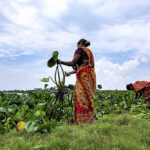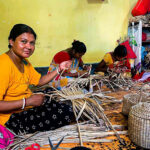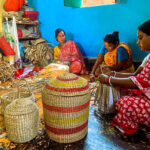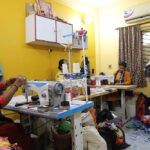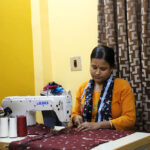
Women Entrepreneurship
The sixth economic (census) released by the Ministry of Statistics Program Implementation, highlights that women constitute around 14% of the total entrepreneurship in India. Women entrepreneurs face problems in raising capital, lack of training, and other traditional barriers. Access to finance is an important constraint of women’s entrepreneurship, the lack of information ends up in a lack of participation. In looking into issues of women’s empowerment, it is important to consider issues of decision-making control in ownership.
ResolveT2C is an emerging business enterprise oriented by women entrepreneurs’ business resolution constitutes the following framework:
- Emphasis on knowledge and skill development of business owners for increased ability to gain the benefits of entrepreneurial activities.
- Encouraging the use of external finance and risk-spreading abilities, gaining access to credit to grow business.
- Overcoming the ‘fears of failure; by evolving into the journey of entrepreneurship, and celebrating successes and failures, as a learning step.
- Setting up a culture of an independent creative space at the institutional level helps build trust in the inner potential for better business outcomes.
- Encouraging diversification in business, introducing a chain of artisanal food products, medicinal plants-based products, and other items including potteries, and rural crafts.
- Adding value chain, the enterprise this year will be opening its outlet, titled, ‘Cups & Crafts’, a café chain with organic healthy snacks served with beverages, and promote the sale of craft products, including eco-packaging services.
- Artisan entrepreneurs reform, wages, health, children welfare, and other benefits like incentives.
- The outward focus and investment for expansion which the statement is designed to encourage in the most effective path to secure the long-term future of the enterprise.
- This year on International Women’s Day, the enterprise entrepreneurs successfully launched the ‘Producers Organization’, to independently streamline production management and encourage hundreds more artisans to learn new skills to embrace financial freedom and stability.
- Women have to maintain a work-life balance, taking care of the household along with professional deliverables, the enterprise policy is to support women artisans by opting for flexibility in working hours, and at the same time encouraging the ‘Big Push’ towards profitability and growth.
Roadmap Ahead:
Scaling up:
ResolveTrash2Cash is not only scalable but also replicable in other urban poor areas around the world. Other urban areas can replicate the enterprise’s supply-driven waste management system. Partnerships created with corporate offices, and institutions that do not have a system for recycling in place. Waste collected for compost has a large market demand in the urban, agricultural, and government sectors. https://cop23.unfccc.int/climate-action/momentum-for-change/urban-poor/resolve-trash-2-cash. The circular framework practiced under RT2C is based on low-to-medium cost investment, highly participatory through partnership, with communities and stakeholders, user-friendly technology, and creates a culture of sustainable fashion through recycling art. It builds entrepreneurial opportunities for unemployed youth and women.
Sustainability goals
In the year 2011, ResolveT2C began its journey in product manufacturing from waste and aimed to achieve the mission by setting aggressive sustainability targets focusing on 3 key areas-recovery, products, and supply chain. Over the past decade, the enterprise evolved with innovations, reducing water and energy usage, and repurposing the waste residue in the manufacturing workshops. ResolveT2C led by women entrepreneur leaders inspires others to follow more sustainable business practices, while it promotes the products under the brand name ‘Positive Style’, to achieve carbon neutrality in consumption patterns creating a positive impact on the world.





